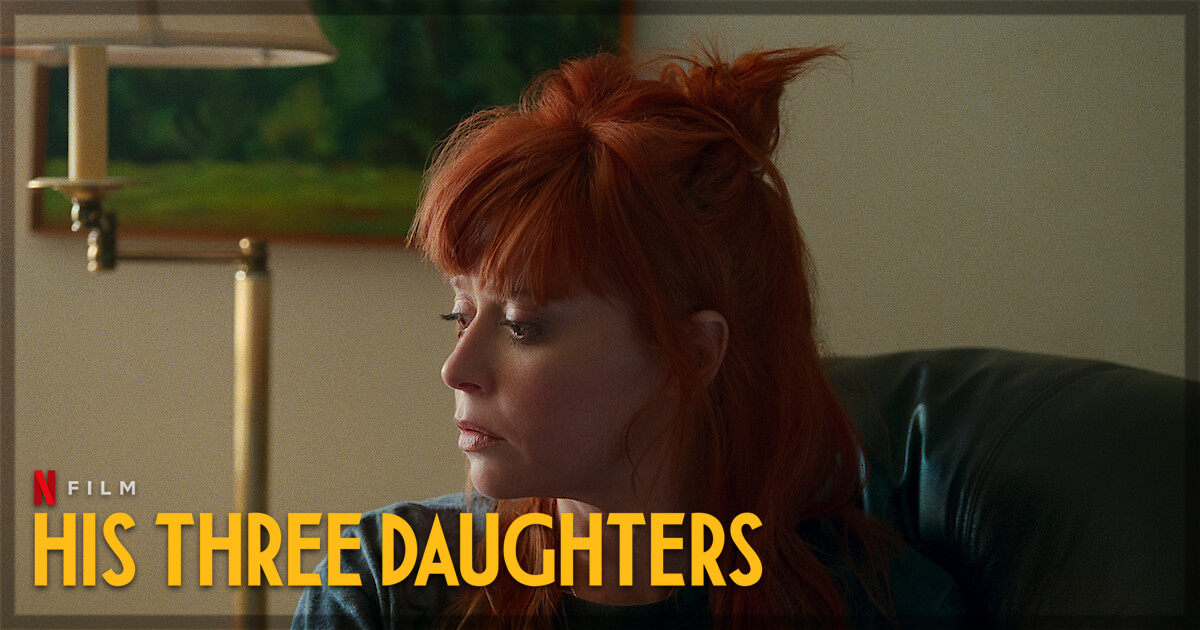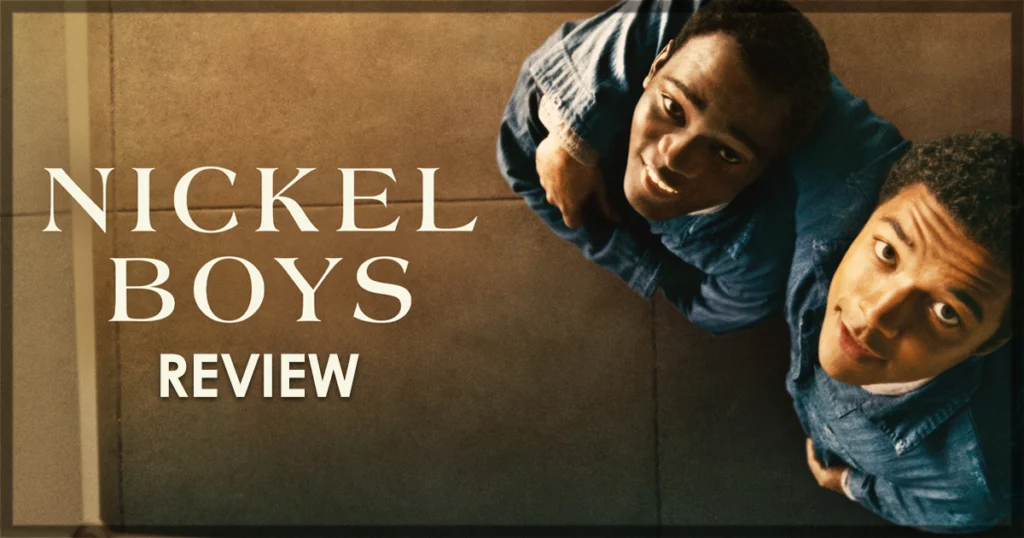Movies have the power to come into a viewer’s life at a time when they need it most. They can teach people lessons about themselves, help them deal with life’s challenges, or simply give them a smile when they are not expecting it. While such an idea does not happen often, the feeling remains undeniable once it does occur. In such instances, those films can become landmarks in the lives of whoever watches them. I say this before I begin to make note that I recently lost someone dear to my heart. In going through the stages of grief, Netflix’s latest film, His Three Daughters, came into my life when I needed it the most. That result helped deliver one of my favorite films of the year.
The story follows three estranged sisters played by Natasha Lyonne, Carrie Coon and Elizabeth Olsen. They come together to care for their ailing father in his New York apartment, where Lyonne’s character also lives. Along the way, the three sisters attempt to mend their disgruntled and broken relationships in this close-knit setting. Some may read that description as a dark comedy, which is not the case. The film has some undeniably funny moments but also quite moving and occasionally sorrowful ones. There are many different tones for actors to play, especially with the story residing in a single location. Thankfully, this cast is more than up to making the film a stirring experience.
Each sister plays a distinct character that feels lived in like they are real people. You buy them as people and understand their struggles while celebrating their joys. Each of these sisters has a different personality, which cannot be summarized in conglomerative terms. To properly discuss them, each actor deserves their time in the spotlight. Their dynamic feels incredibly truthful, particularly in the interplay between the three.
Starting with Carrie Coon as Katie, she may seem like nothing more than the “hard-nosed older sister and mother.” In actuality, such an exterior hides a need she has to provide. Her “anger” comes from a place of deep love for her sisters, which requires Coon to strike a balance. She has to show vulnerability while never breaking from Katie’s “mean“ exterior. Over time Coon broadens that warmth In her interactions with her other sisters. The only difference is that her dynamic with each sister is entirely different. This gives each interaction with Olsen and Lyonne a wholly distinct flavor. The results help Coon deliver an incredibly compelling performance.
Elizabeth Olsen’s character, Christina, comes from another unique perspective. Like Katie, she is a mother and wife who imbues Christina with a sense of anxiety. With brief allusions to a wild past, Olsen’s character starts the film as the kindly Mom. Behind those positive outward appearances, she keeps an undercurrent of angst. That shows through in her attempts to maintain the peace amongst her sisters. In the wrong actor’s hands, such a role could come off as a manic caricature. In contrast, Olsen creates sympathy and warmth with viewers thanks to her continued attempts at keeping the piece. That includes realistic conversations where the cheerful facade begins to crack. It’s an honest look at someone who just wants everyone to be happy, which she beautifully conveys.
The performance that surprised me the most was Natasha Lyonne as Rachel. Initially, Rachel is presented as nothing more than the funny, cynical pothead older sister. Throughout her career, Lyonne has always been able to deliver a snarky, offhanded, and hilarious comment. It’s what made her a star and so endlessly entertaining to watch in both film and television. In His Three Daughters, the screenplay by writer/director Azazel Jacobs gives her more than that to play. He shows those expected traits and allows Lyonne to deliver on them with an understated humanity. She portrays herself as more than just a typical archetype. Instead, unlike her sisters (and technically her half-sisters in the film), her heart is shown entirely differently. Lyonne makes Rachel someone with an understated kindness, not delivered in the expected way.
If there are any qualms with His Three Daughters, they mostly occur in the latter half. This involves a particular story beat, which leans into an almost fantastical area. That pivot may not work for some viewers. An argument can be made for such tones teetering to melodramatic territory. In my viewing, that element struck a deep, honest, and highly emotional chord. That is thanks to Azazel Jacobs’s humane delivery of the drama in keeping with the tone of his performances.
It also must be noted that His Three Daughters can feel like a stage play in some sequences. Shot primarily in one location, the film calls upon quite a bit of emotion from its actors. Simultaneously, it must make the apartment a character within its right. The location feels real and lived, making the drama much more effective. The characters reminisce about their lives and the events in that location (and generally their childhood). In turn, the actors must deliver long takes, allowing the audience to understand them and their interpersonal dynamics.
His Three Daughters might earn the title of my biggest surprise in 2024. The film has a decadent trio of actors mining the rich material. Granted, with my own recent personal loss, the film managed to deliver a resounding impact on me. It’s a film that I needed to see precisely into my life when I did. It has an honest heart, and it unveils itself in an emotionally nuanced and exciting way. Director Azazel Jacobs knows how he wants to put audiences through an emotional gambit, and he succeeds. His ambitions, on top of the terrific trio of performances, make it a film to remember. For my own personal “best of the year“ prospects, His Three Daughters is one I won’t soon forget. It’s a film I am so grateful came into my life when it did.


